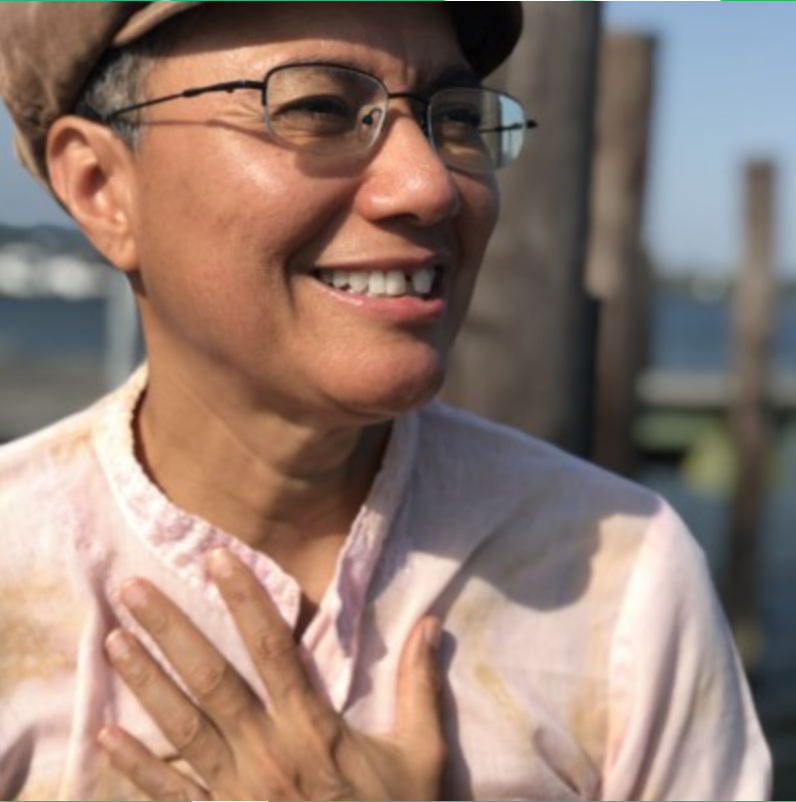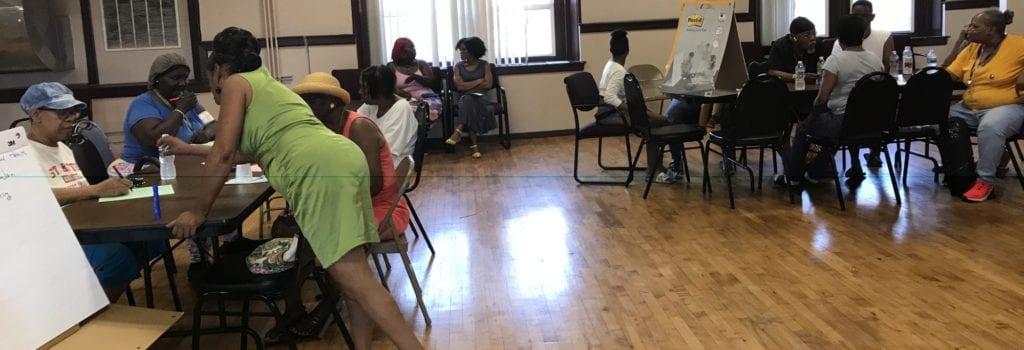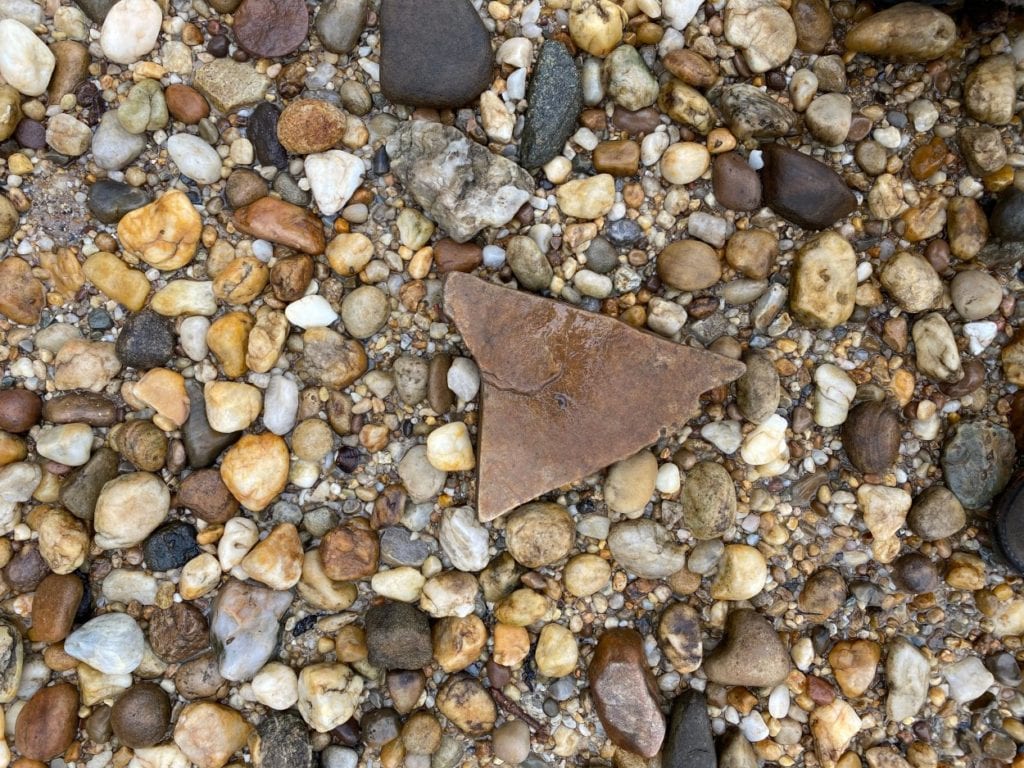
Marisela Gomez is a scholar activist from Baltimore MD. She received her PHD, MD, and MPH from Johns Hopkins University and has spent more than 20 years engaged in social determinants of health participatory research. Dr. Gomez is a Buddhist in the Thich Nhat Hanh tradition. You can listen to a recorded meditation and talk that Marisela offered for our Digital Campus here.
When were you a UofO urbanist in residence or teacher?
April 2018 at the 10th Placemaking and book release for ‘Homeboy came to Orange’
What did you share?
I shared in the Faith + Works on Mindfulness and our work for equitable community rebuilding
What have you learned from UofO? How do you use it in your work?
I continue to learn about community being the foundation of any community change. Sounds like it would be a basic, but I see how it shows up at U of O in practical ways. It inspires me to continuously be reminded that this is how all community change must occur- through community participation and democracy, fellowship and food.
How/what are you seeing/hearing/tasting where you are? Share photos and drawings if you like.
(lost my phone)
The streets of Baltimore are empty…maybe starting to get populated this weekend with some re-opening announced to begin today. Construction continues, supposedly essential…essential due to the foundational inequalities of our economy only.
Village of Love and Resistance has continued on with some of its community re-building work, even more quickly during the pandemic. Mostly virtual with meetings as we prepare to acquire a building to be VOLAR’s community hub. The pandemic makes us even more aware that having spaces and places co-owned by residents is critical in designing a more connected and participatory urban space. Spaces where local residents are responsible for the co-creation, function and direction of economic opportunities, celebration, wellness and shelter assures nodes of connectivity within and across neighborhoods- cohesion, power, love.

Our membership-building has slowed down because we are not able to continue to meet with residents and engage directly on the ground. We have supported some food delivery to some of our neighbors and looking into how more local residents can access telemedicine. The digital divide is preventing residents in some of our poor Black neighborhoods to access health care the way it is being delivered during the pandemic. However, there has been much organizing between tech non-profits to help residents in some of these same neighborhoods to access the internet for education. We need to tag on the health access as a priority.
The urgent need for food has been great and some of the anchor institutions as well as the city has been engaging to address this need.
The foundations based in the city have also stepped up their granting opportunity to help local non-profits address shortfalls from the pandemic. It remains to be seen how this will affect the ability for these non-profits to continue to provide necessary services and outreach.
What has changed your perspective or approach to urbanism during this time? What has stayed the same?
My commitment to urbanism has grown. The pandemic has revealed even more deeply the broken bones of our urban spaces. Besides rural America, much of our poverty is hypersegregated in urban spaces. The disproportionate impact low income workers in urban spaces, the wealth and health disparity in urban spaces, all highlight the skeletons of our inequitable systems. I am left wondering if the rhetoric from certain areas of leadership will extend into funding and action as the pandemic evolves? Baltimore experienced a phenomenon where after the death of Freddie Gray and the Uprising, many spoke about the need to change the systems that had created two Baltimores-the haves and have-nots. Five years later, not much has changed. Will it be the same for the pandemic? Both revealed the fundamental cracks in our systems, and the path to systemic police violence and systemic economic, social, health, spiritual and political violence.
How do we engage community while we shelter in place?
We can engage by sending texts and calling, emailing. Checking in on folks. We continue to plan and have meetings. We change our calendars/schedules and project timelines with the pandemic in mind. Not changing our goals but adjusting how we accomplish them during this period and well into the next coming years as things re-open and we re-assess. It has to be changing because we still don’t know how things will be as we continue to re-open. We remain committed to our mission of equitable urbanism-though some of our plans in getting there might change.
In the face of inequality how do we build solidarity?
We acknowledge inequality and understand how we got here. Without true understanding we cannot vision or plan for real change. Building solidarity on truth is key to lasting change. Solidarity requires we change within ourselves, as we rub up against each other’s edges, and hold space for others to lean into radical respect-for themselves and for each other. The outward facing work will always continue-it’s the inward facing work that requires more intentional community building, more time to engage with, and this is the work that most of us actually fear the most. This is required to build solidarity, even while we address the inequality that we usually come together to face outwardly-but inequality is also inside of us and must be transformed to do the external work.
How do you express your love and commitment to your city at this time?
I continue to do the work virtually and when necessary safely engage on the ground.
I practice mindfulness and meditation and continue to heal so that that energy of healing is transmitted to those near me and far from me. The more I can remain at peace, the more peace I have to share with the city. The less peace I have inside, the less peace I can offer to the city. It’s a direct connection-that’s what it means to realize that we are all interconnected; what each one of us do, here and now, matters.
